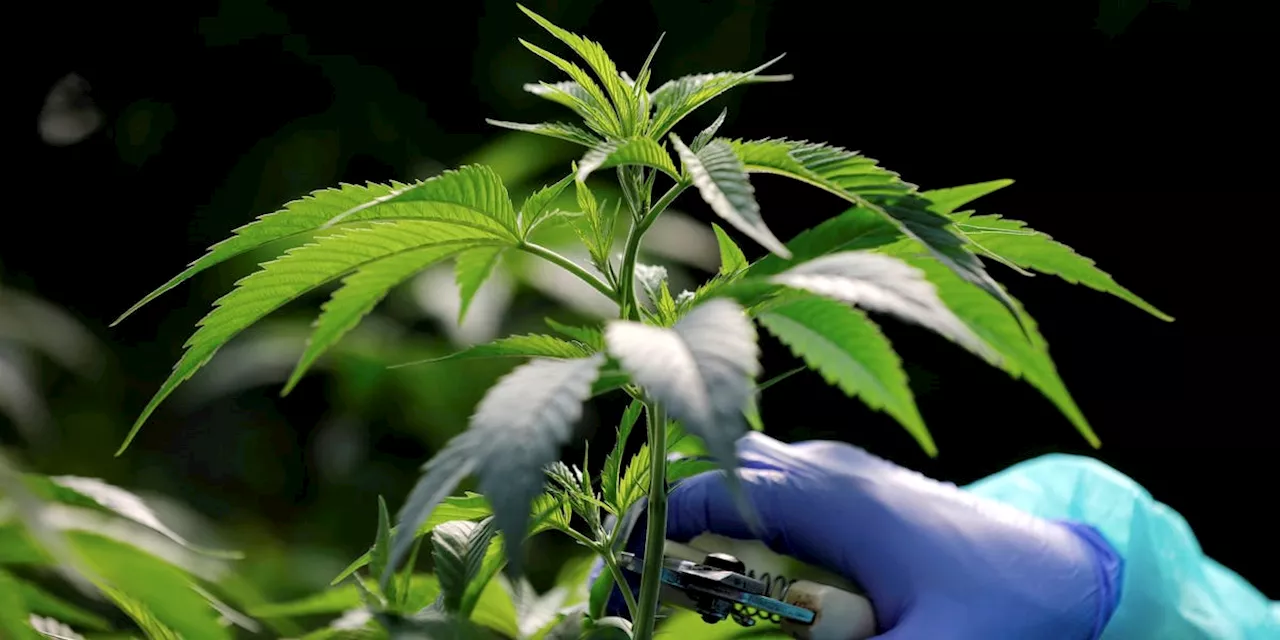As alcohol consumption declines, particularly among younger generations, investors are looking to other 'sin stocks' for potential returns. Cannabis beverages are emerging as a significant growth area, fueled by shifting consumer preferences and a federal policy loophole.
Dry January may be evolving into a year-round lifestyle choice for many Americans. Even before the US Surgeon General, Vivek Murthy, issued a warning about the link between alcohol and cancer, there was a noticeable shift towards reduced alcohol consumption. Millennials and Gen Z have been at the forefront of this trend, leading to a decline in alcohol consumption across the country.
A Gallup survey revealed that between 2021 and 2023, only 62% of Americans aged 18 to 34 drank alcohol, compared to 72% between 2001 and 2003.This changing consumption pattern has significant implications for investors in the alcohol industry. Dan Ahrens, the Chief Operating Officer and Portfolio Manager at AdvisorShares, has been closely observing the alcohol sector for over 25 years. He oversees the AdvisorShares Vice ETF (VICE), which focuses on 'sin stocks' like alcohol, tobacco, and gaming. Traditionally, alcohol and alcohol companies were viewed as recession-resistant, with demand remaining relatively stable regardless of economic conditions. Ahrens explains that this perception is changing as overall demand for alcohol appears to be in a long-term decline. The VICE ETF now holds less exposure to the alcohol sector than ever before. Following Murthy's report, released in January 2025, which highlighted the health risks associated with alcohol consumption, alcohol companies experienced a dip in their stock prices. Shares of Anheuser-Busch InBev, the producer of Budweiser, fell over 2%, while Diageo, the producer of Captain Morgan rum and Ketel One vodka, saw a nearly 4% decline. However, Ahrens isn't planning to completely divest from alcohol investments. He recognizes that the alcohol industry is vast and diversified, with companies adapting to evolving consumer preferences.In 2022, Constellation Brands, known for brands like Modelo and Corona Extra, launched a non-alcoholic beer. Heineken also reported an increase in sales of its non-alcoholic beverages. Ahrens emphasizes that a nuanced approach is necessary when evaluating individual companies within the alcohol sector. Some companies are large and diversified across spirits, wine, and beer, while others have been focusing on alternative drinks like seltzers and ciders. This shift towards healthier options might be coinciding with another trend: the increasing popularity of cannabis. Ahrens notes that while younger generations are drinking less alcohol, they're consuming more cannabis. Gallup polls indicate that the percentage of Americans who report smoking marijuana has more than doubled in the last decade, from 7% in 2013 to 15% in 2024. This growing interest in cannabis has led alcohol companies to incorporate hemp- and cannabis-based drinks into their product lines, alongside their non-alcoholic offerings. A federal policy loophole in the 2018 Farm Bill, which legalized the growth and sale of hemp containing low concentrations of cannabis compounds, has further fueled the demand for cannabis beverages. This loophole allows for the nationwide sale of certain cannabis products, even though cannabis legalization remains a state-by-state issue. Ahrens believes this loophole has effectively created a 'backdoor legalization' for a certain level of hemp, leading to a surge in hemp-based beverages in recent years. He points to companies like Boston Beer Company, which launched a line of non-alcoholic cannabis cocktails and cannabis-infused iced tea, and Tilray Brands, a Canadian cannabis company that has acquired several craft breweries and is expanding into the US market through hemp-based beverages. Ahrens also sees potential in Turning Point Brands, a traditional tobacco company that owns Zig-Zag rolling papers, a popular product among cannabis consumers
Investing Alcohol Cannabis Sin Stocks Investment Trends Consumer Behavior Beverage Industry
United States Latest News, United States Headlines
Similar News:You can also read news stories similar to this one that we have collected from other news sources.
 Improving body image is more about changing the image than changing the body.Criticism is often projected onto our mirrored reflection, causing anguish and distress, but there are ways to approach body image differently.
Improving body image is more about changing the image than changing the body.Criticism is often projected onto our mirrored reflection, causing anguish and distress, but there are ways to approach body image differently.
Read more »
 The Changing Face of Family: More Young Adults Living With ParentsThis article explores the increasing trend of young adults living with their parents in the U.S., a shift from the traditional expectation of independence at 18. It examines the factors driving this change, including financial pressures and evolving parental attitudes.
The Changing Face of Family: More Young Adults Living With ParentsThis article explores the increasing trend of young adults living with their parents in the U.S., a shift from the traditional expectation of independence at 18. It examines the factors driving this change, including financial pressures and evolving parental attitudes.
Read more »
 Small Cannabis Businesses Face Significant Challenges in the Growing Craft MarketThis article explores the difficulties faced by small cannabis businesses in the competitive craft cannabis market. It highlights regulatory hurdles, financial strain, and the pressure of competing with large corporations.
Small Cannabis Businesses Face Significant Challenges in the Growing Craft MarketThis article explores the difficulties faced by small cannabis businesses in the competitive craft cannabis market. It highlights regulatory hurdles, financial strain, and the pressure of competing with large corporations.
Read more »
 Small Cannabis Businesses Face Mounting Challenges in Competitive MarketThe craft cannabis industry is booming, but small businesses struggle to compete with larger corporations. They face hurdles like complex regulations, high compliance costs, and intense competition. Regulations, while intended to ensure safety and quality, can be burdensome for small producers with limited resources. Additionally, the dominance of large cannabis companies with extensive resources and marketing power puts pressure on smaller businesses to differentiate themselves through quality and craftsmanship.
Small Cannabis Businesses Face Mounting Challenges in Competitive MarketThe craft cannabis industry is booming, but small businesses struggle to compete with larger corporations. They face hurdles like complex regulations, high compliance costs, and intense competition. Regulations, while intended to ensure safety and quality, can be burdensome for small producers with limited resources. Additionally, the dominance of large cannabis companies with extensive resources and marketing power puts pressure on smaller businesses to differentiate themselves through quality and craftsmanship.
Read more »
 Craft Cannabis Businesses Face Challenges in Growing MarketSmall cannabis businesses struggle to compete with larger corporations due to complex regulations, high costs, and intense competition.
Craft Cannabis Businesses Face Challenges in Growing MarketSmall cannabis businesses struggle to compete with larger corporations due to complex regulations, high costs, and intense competition.
Read more »
 Life, after diagnosisThe changing face of cancer survivorship
Life, after diagnosisThe changing face of cancer survivorship
Read more »
